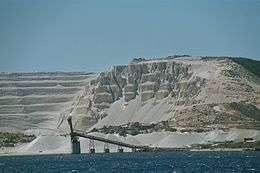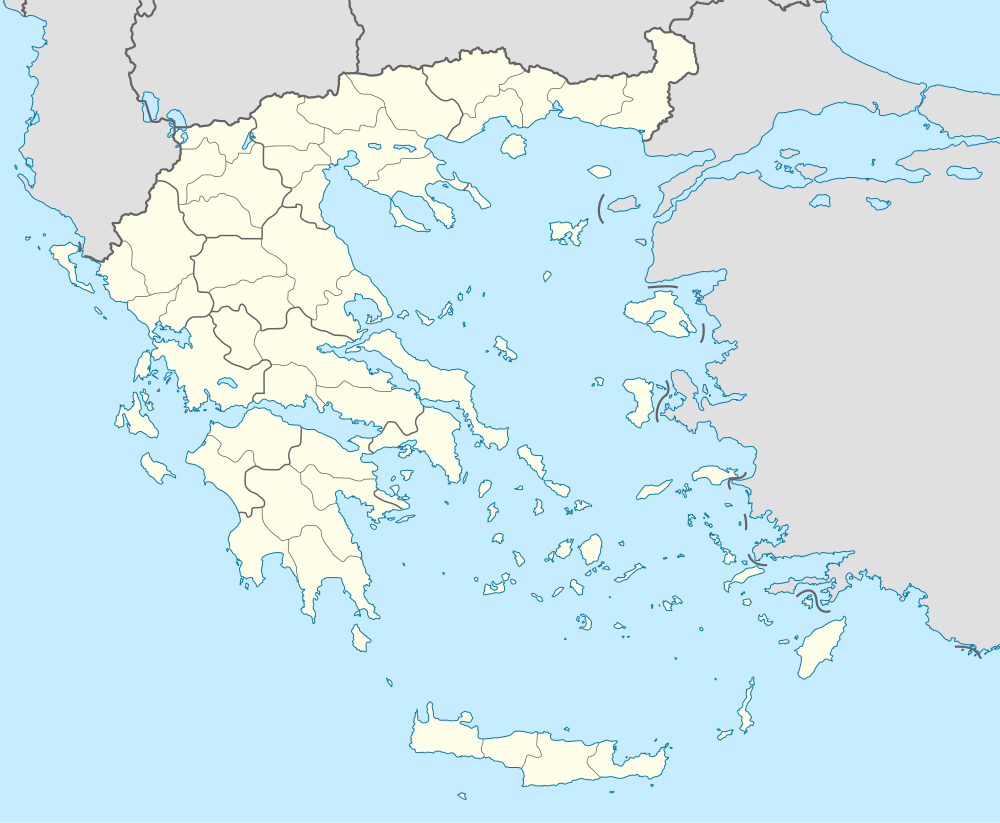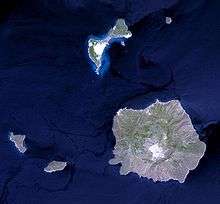Gyali
| Native name: Γυαλί | |
|---|---|
 Pumice mining on Gyali | |
 Gyali | |
| Geography | |
| Coordinates | 36°39′43″N 27°06′54″E / 36.662°N 27.115°ECoordinates: 36°39′43″N 27°06′54″E / 36.662°N 27.115°E |
| Archipelago | Dodecanese |
| Highest elevation | 180 m (590 ft) |
| Highest point | Volcano |
| Administration | |
|
Greece | |
| Region | South Aegean |
| Regional unit | Kos |
| Capital city | Chora |
| Demographics | |
| Population | 10 (2001) |
| Postal code | 853 03 |
| Area code(s) | 22420 |
| Vehicle registration | ΚΧ, ΡΟ, ΡΚ |
Gyali (Greek: Γυαλί "glass", also spelled Giali or Yali, pronounced [ʝaˈli]) is a volcanic Greek island in the Dodecanese, located halfway between the south coast of Kos (Kardamaina) and Nisyros. It consists of rhyolitic obsidian lava domes and pumice deposits (which are mined in huge quantities).[1] The island has two distinct segments, with the northeastern part almost entirely made of obsidian and the southwestern part of pumice. These are connected by a narrow isthmus and beach made of modern reef sediments.
Geography

The island is 6 km (4 mi) long and between 4 km (2 mi) and 500 m (1,640 ft) across. It has a 180 m (591 ft) cave. Parts of the island undergoing pumice strip mining are barren of vegetation. The 2001 census reported a resident population of 10 people. Administratively, it is part of the municipality of Nisyros. Its also popular for Perli, a thermo powder added in construction.
See also
References
- ↑ "Yali". Global Volcanism Program. Smithsonian Institution. Retrieved 2008-01-22.
External links
- Official website of Municipality of Nisyros (English) (French) (German) (Greek) (Italian) (Spanish)
